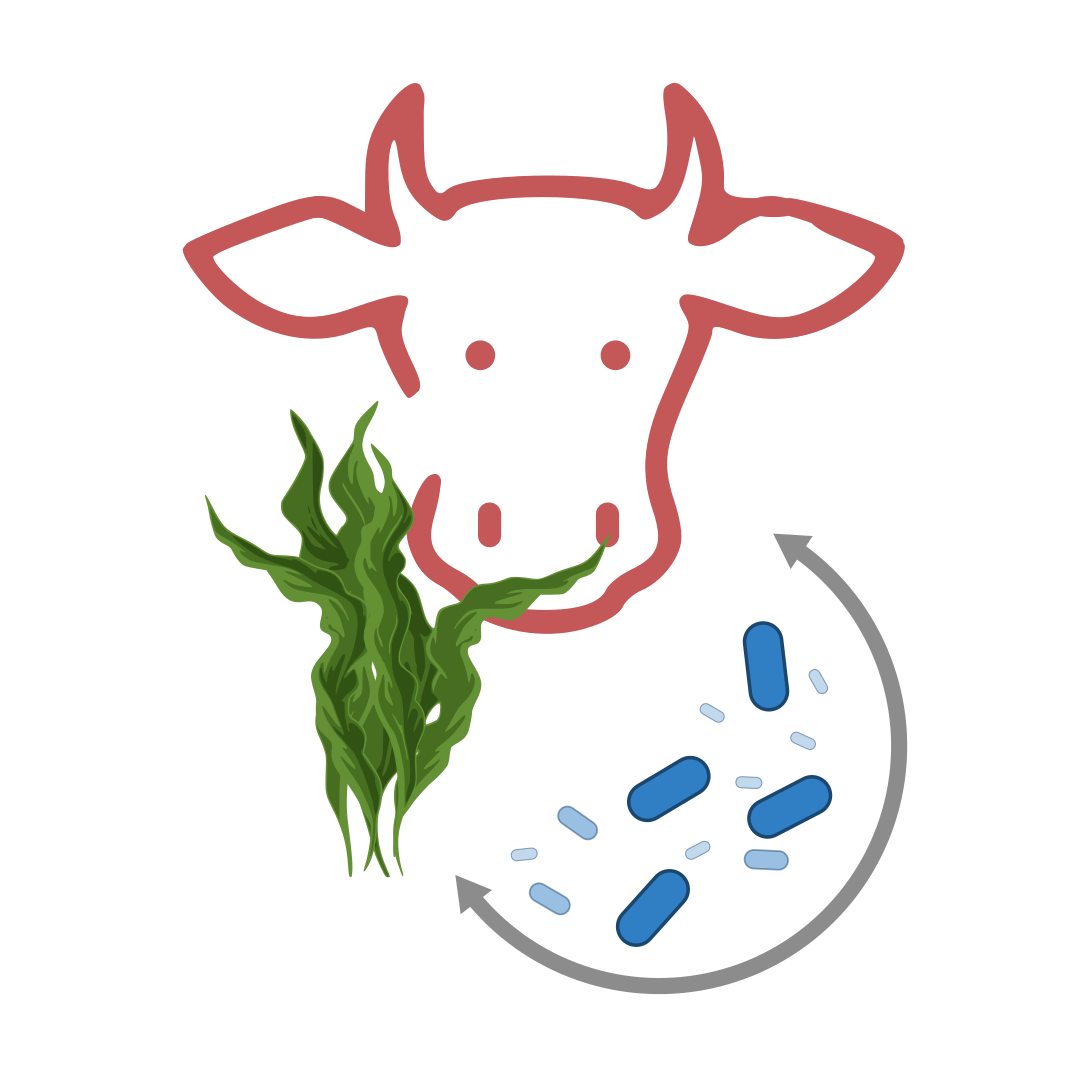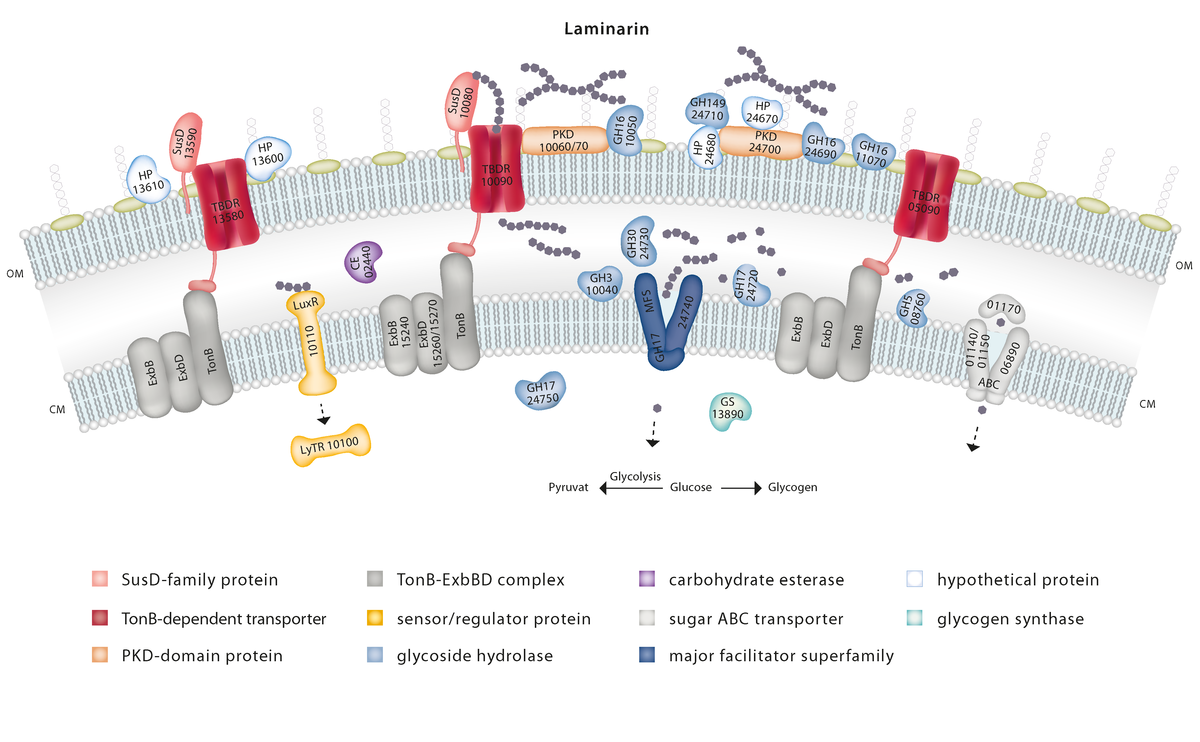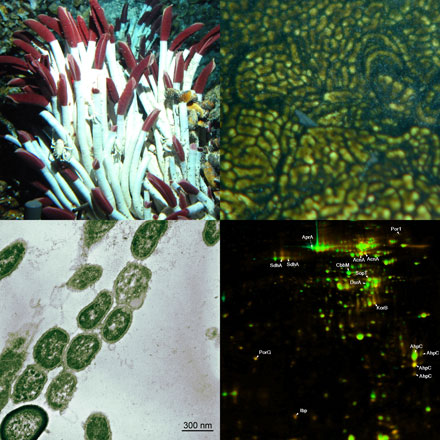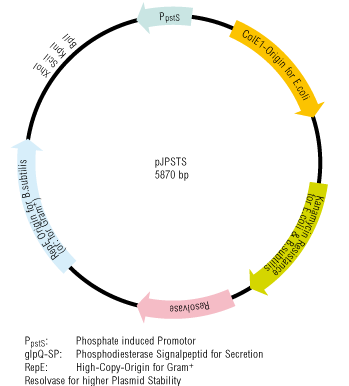Alg4Nut
The joint project 'Alg4Nut' is investigating the impact of marine algae cultivated in the Baltic Sea region on animal health. The sub-project of the Department of Pharmaceutical Biotechnology at the University of Greifswald includes the investigation of the rumen microbiome and bacterial strategies for the utilisation of algal polysaccharides. In addition, the Greifswald sub-project contributes to the development of new biotechnological production strains.
Molecular mechanisms of marine polysaccharide degradation
Algae blooms, i.e., massive proliferation of algae in marine ecosystems, are caused by seasonal changes in environmental conditions and nutrient contaminations, such as agricultural runoffs. These large quantities of algal biomass have detrimental impact on coastal ecosystems, tourism, and aquaculture. At the same time, they present a hitherto unrecognized sustainable resource of rare marine sugars. A complex range of nutrients released upon algae death presents fertile ground for bacteria. These nutrients include structurally versatile algal polysaccharides. To tap this partially recalcitrant food source, bacterial communities possess a diverse repertoire of highly specialized enzymes, substrate-binding proteins and transporters. Interestingly, individual bacteria pursue quite distinct strategies to prevail against nutritional competitors or to profit from each other. These foci are central to our DFG research unit POMPU (FOR 2406; www.pompu-project.de).
Microbial interactions and natural products of marine symbioses
All higher organisms are associated with microorganisms. The coexistence of these diverse partners and their host-microbe interactions are crucial for life on Earth. Detailed knowledge of microbial physiology and molecular interaction mechanisms is therefore essential for understanding biological processes. Bacterial symbionts perform many functions: they provide their hosts with nutrients, provide access to inhospitable habitats or produce antimicrobial bioactive compounds.
Functional analysis and strain optimization of industrially relevant Bacilli
Bacillus subtilis is one of the best-studied bacteria and is known for its ability to form metabolically inactive spores to survive under extreme environmental conditions. In addition, B. subtilis is a master at forming other differentiated cell types that play important roles in motility, biofilm formation or the uptake of free DNA from the environment. In addition to this cell differentiation, bacilli are able to secrete large amounts of biotechnologically relevant substances, which is why representatives such as B. subtilis or B. licheniformis have become crucial for the industrial production of vitamins, enzymes or secondary metabolites.





